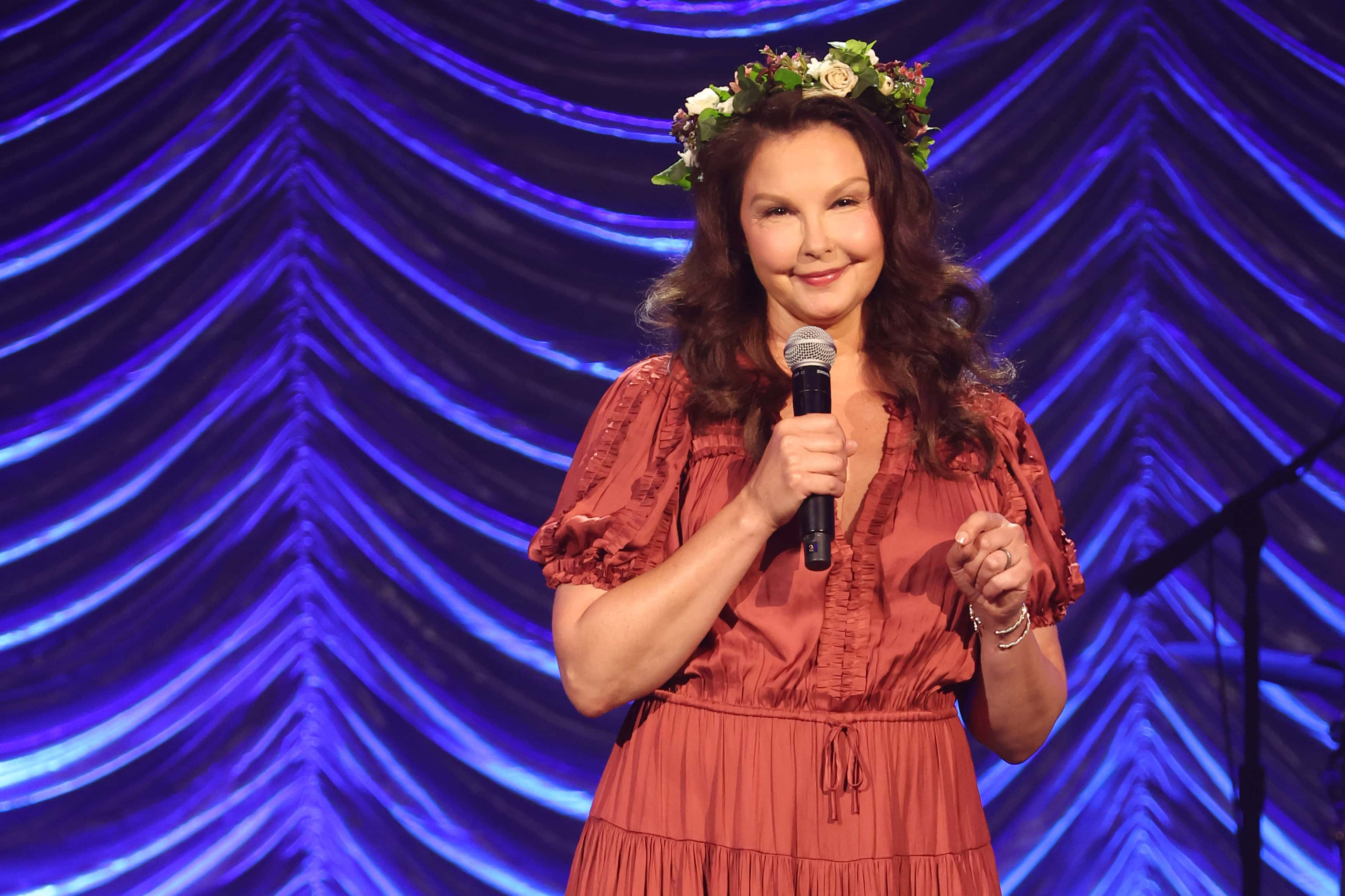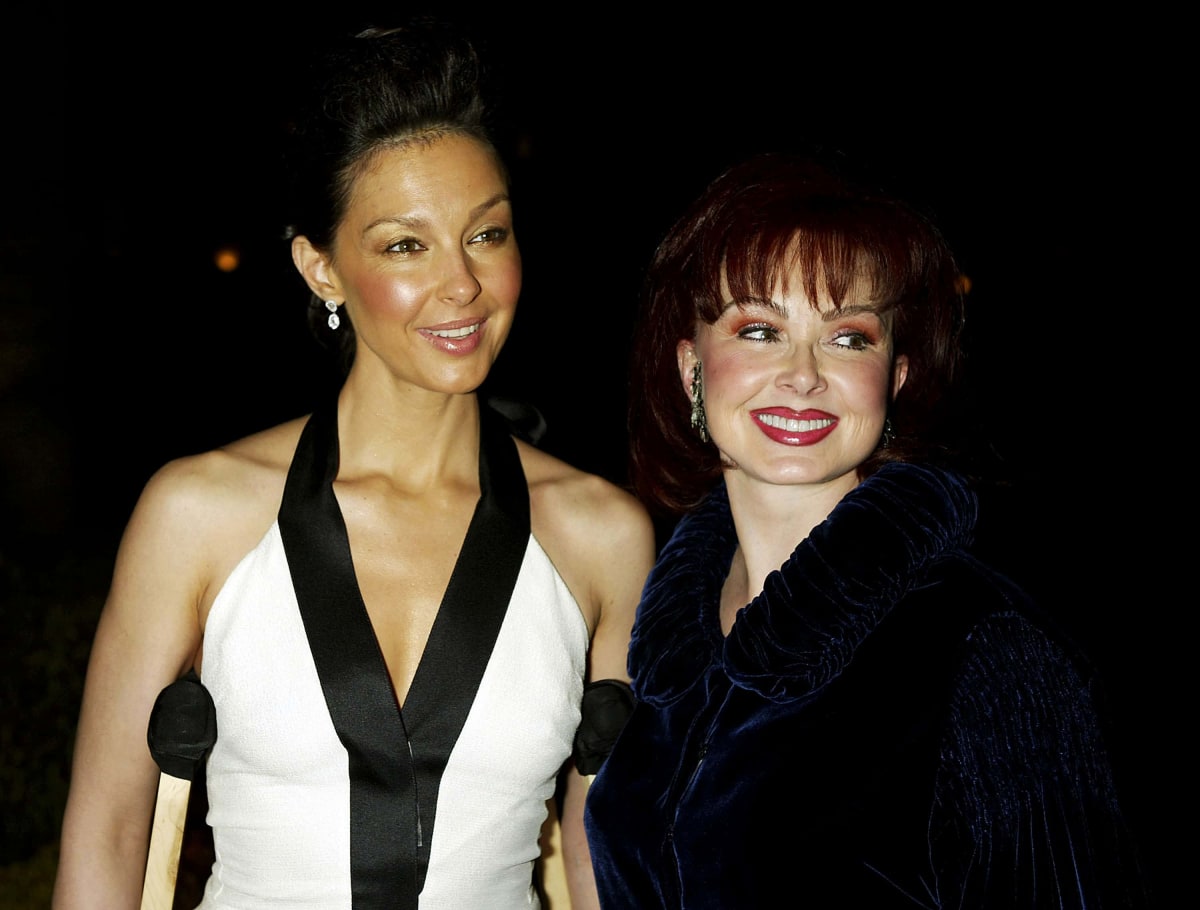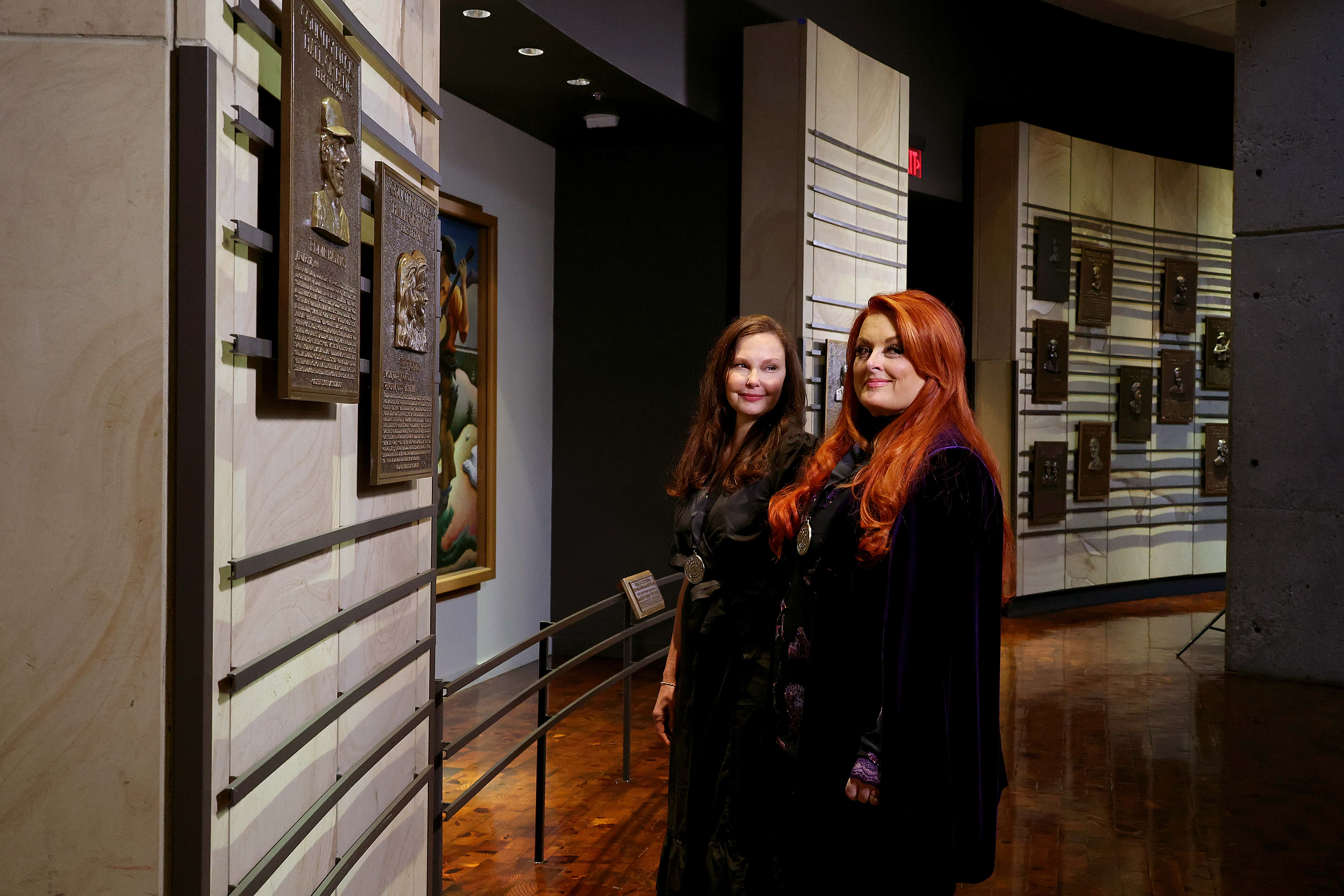'Holding her laboring body haunts my nights': Ashley Judd reveals the trauma of watching mom Naomi Judd die

LIEPERS FORK, TENNESSEE: Ashley Judd recently opened up about the tragic moments that occurred when she found her mother, famed country star Naomi Judd, after her suicide in April. In a personal essay in The New York Times, the 54-year-old described that day as, “the most shattering day of her life” when she recalled finding her mother still alive and holding her. "The trauma of discovering and then holding her laboring body haunts my nights," Judd wrote. She felt "cornered and powerless" because all she wanted to do was comfort her mother, but police officers began questioning her and kept her away from Naomi in the last moments of her life.
“I wanted to be comforting her, telling her how she was about to see her daddy and younger brother as she ‘went away home,’ as we say in Appalachia,” Judd said. “Instead, without it being indicated I had any choices about when, where and how to participate, I began a series of interviews that felt mandatory and imposed on me that drew me away from the precious end of my mother’s life.”
READ MORE
Ashley Judd says mom Naomi shot herself moments after asking her to stay with her
INSIDE ASHLEY AND WYNONNA JUDD'S WAR: From a tell-all memoir and tracking device to mom Naomi's will
Judd felt that the officers put her down as a "possible suspect" only moments after she found her mother's body. “The men who were present left us feeling stripped of any sensitive boundary, interrogated and, in my case, as if I was a possible suspect in my mother’s suicide,” she recalled.

The famous American singer died by suicide on April 30 at the age of 76 from a self-inflicted gunshot wound. She struggled with "significant" anxiety, depression and bipolar disorder. Judd said she was so shocked after finding her dying mother that she answered questions from police "that I never would have answered on any other day," not thinking about whether the public would have access to them later. In the months since Naomi's death, many details about her death have been released to the public, including videos, pictures and interviews with the family, and Judd is now fighting to ensure her family gets their privacy.

"In the immediate aftermath of a life-altering tragedy, when we are in a state of acute shock, trauma, panic and distress, the authorities show up to talk to us," she wrote, "Because many of us are socially conditioned to cooperate with law enforcement, we are utterly unguarded in what we say." "I never thought to ask my own questions, including, is your body camera on? Am I being audio recorded again? Where and how will what I am sharing be stored, used and made available to the public?" Ashley said she did not blame the officers at the scene for their actions, but instead blamed the "terrible, outdated interview procedures and methods of interacting with family members who are in shock or trauma," that she assumed they were taught.
She argued that records of statements made in moments of distress, when people are unable to reflect on whether they might be made public, should be kept private, and said that current laws "revictimize" family members. “I don’t know that we’ll be able to get the privacy we deserve…I do know that we’re not alone,” Judd said in her essay. “We feel deep compassion for Vanessa Bryant and all families that have had to endure the anguish of a leaked or legal public release of the most intimate, raw details surrounding a death.”

Ashley said she and her family filed a petition in early August asking the courts not to release documents in the investigative file from her mother's suicide. She asked the courts to seal the "interviews the police conducted with us at a time when we were at our most vulnerable and least able to grasp that what we shared so freely that day could enter the public domain." She noted the request was made not to hide family secrets, but to protect the dignity of her mother and to save her family from further harm. "We ask because privacy in death is a death with more dignity," she wrote, "And for those left behind, privacy avoids heaping further harm upon a family that is already permanently and painfully altered."
If you or someone you know is considering suicide, please contact the National Suicide Hotline at 1-800-273-TALK (8255).










